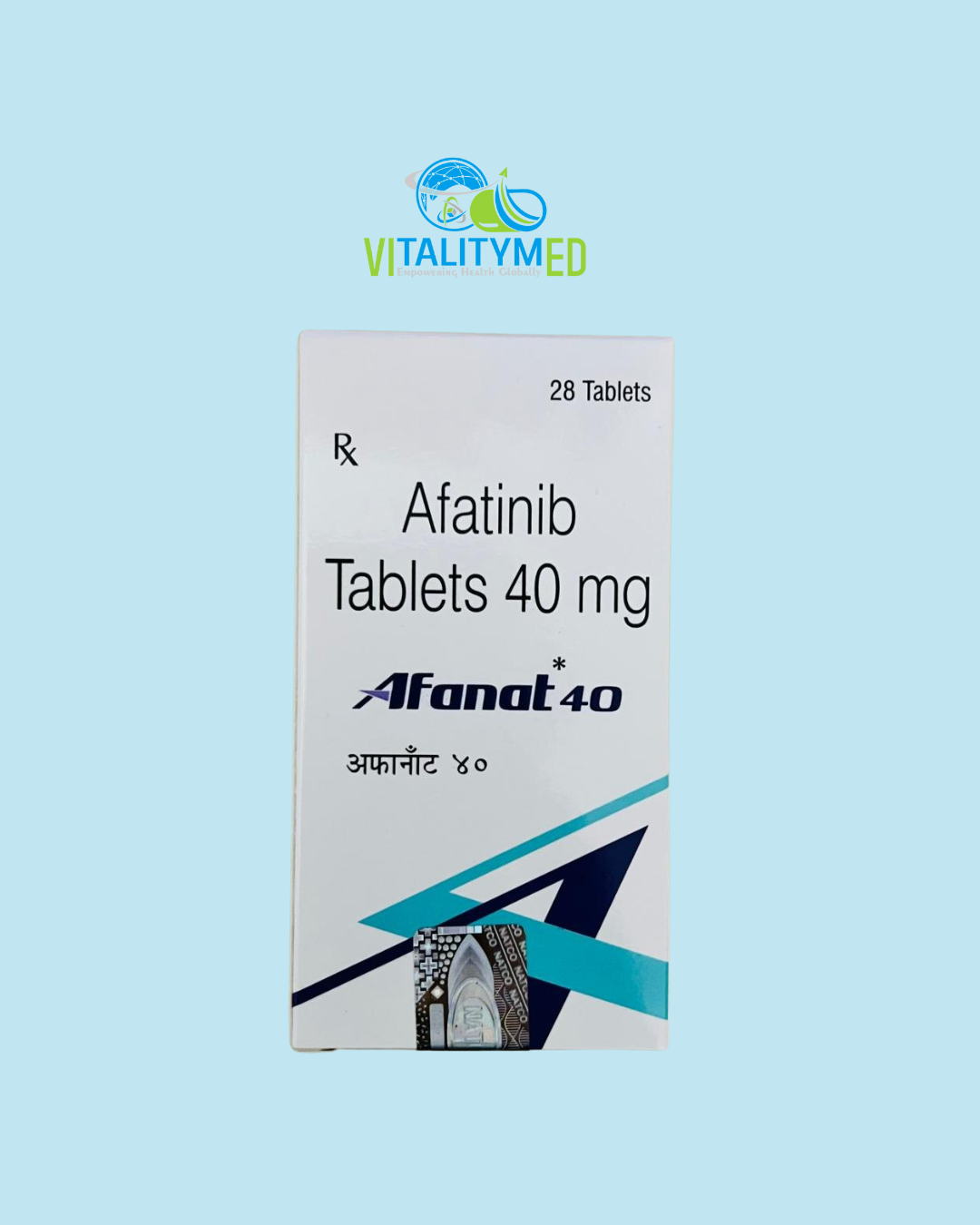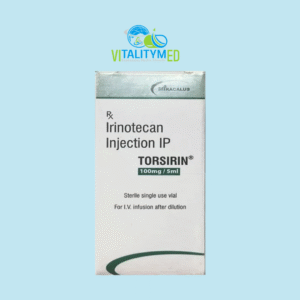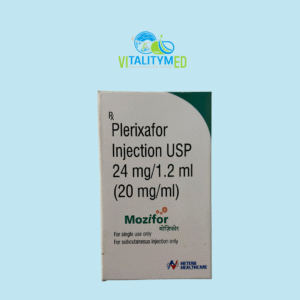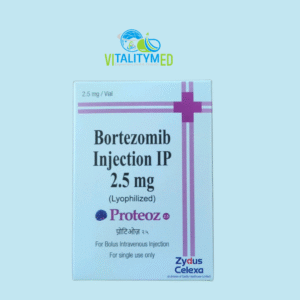Afanat 40 mg contains afatinib, a targeted cancer therapy used to treat specific types of non-small cell lung cancer (NSCLC). It belongs to a class of drugs known as tyrosine kinase inhibitors. Afatinib is designed to block the signals that cause cancer cells to grow and multiply, especially in tumors with mutations in the epidermal growth factor receptor (EGFR) gene. It is taken orally and prescribed when cancer shows certain EGFR gene changes, commonly found in lung adenocarcinoma.
Afatinib is not a general chemotherapy drug but a precision therapy, meaning it works best in patients whose cancer has specific genetic traits. This makes it a personalised treatment option, tailored to the biology of the tumor.
Mechanism of Action
Afatinib works by irreversibly inhibiting the activity of EGFR and other members of the ErbB family of receptors, including HER2 and HER4. These receptors play a critical role in transmitting growth signals in cancer cells.
By blocking these receptors, afatinib:
-
Prevents cancer cells from receiving the signals they need to grow and divide
-
Helps slow the spread of cancer
-
May shrink tumors in some patients
Uses
Afanat is primarily used for the treatment of:
-
Non-small cell lung cancer (NSCLC) that has specific EGFR mutations, especially in patients who have not received prior EGFR-targeted therapy
-
It may also be used in certain patients whose disease has progressed after other treatments, depending on the genetic profile of the tumor
Adverse Effects
While afatinib offers a targeted approach to cancer treatment, it can cause a range of side effects, which vary in severity from person to person.
Common Side Effects
-
Diarrhea, sometimes severe
-
Skin reactions including rash and dry skin
-
Mouth sores
-
Loss of appetite
-
Nail inflammation
-
Fatigue
-
-







